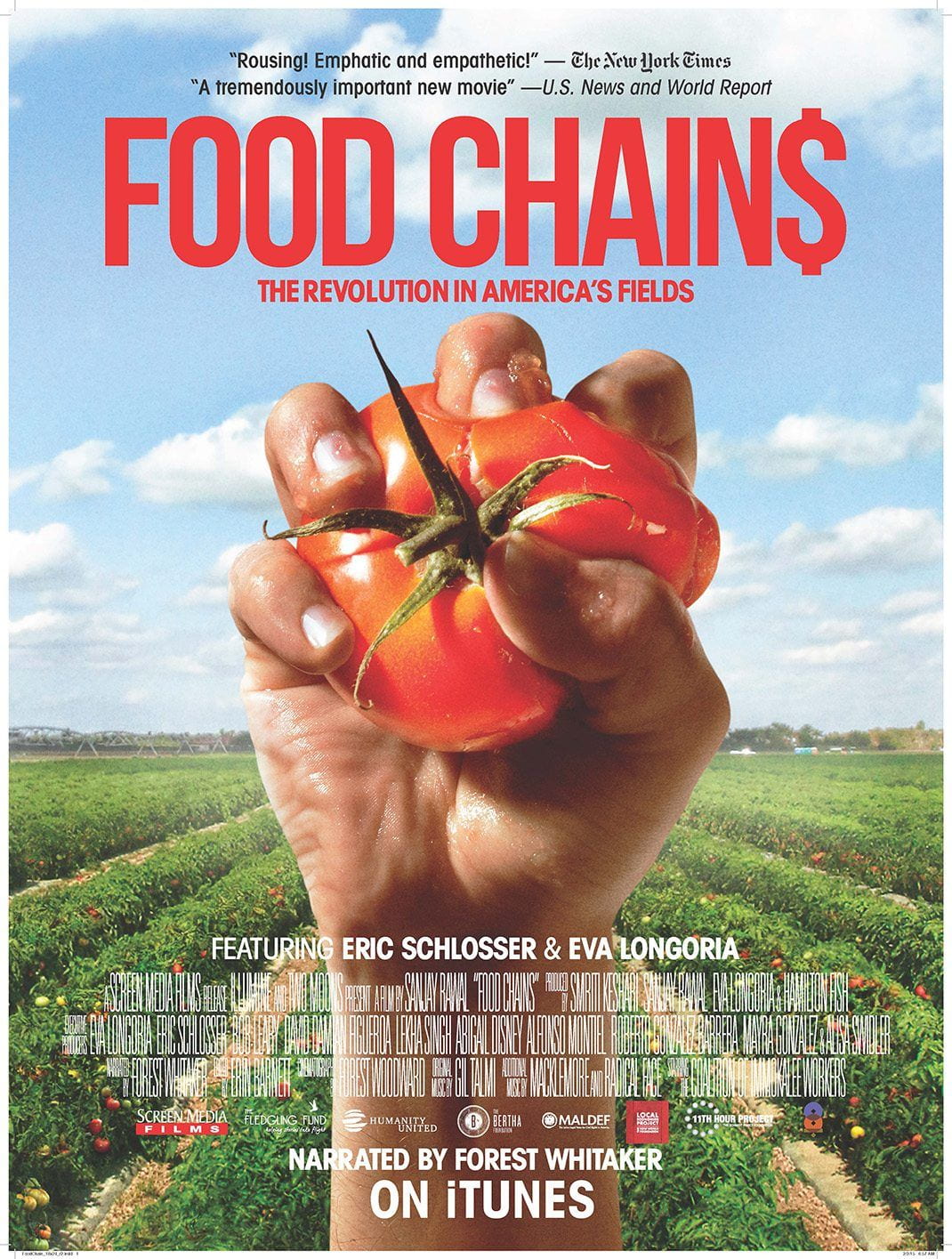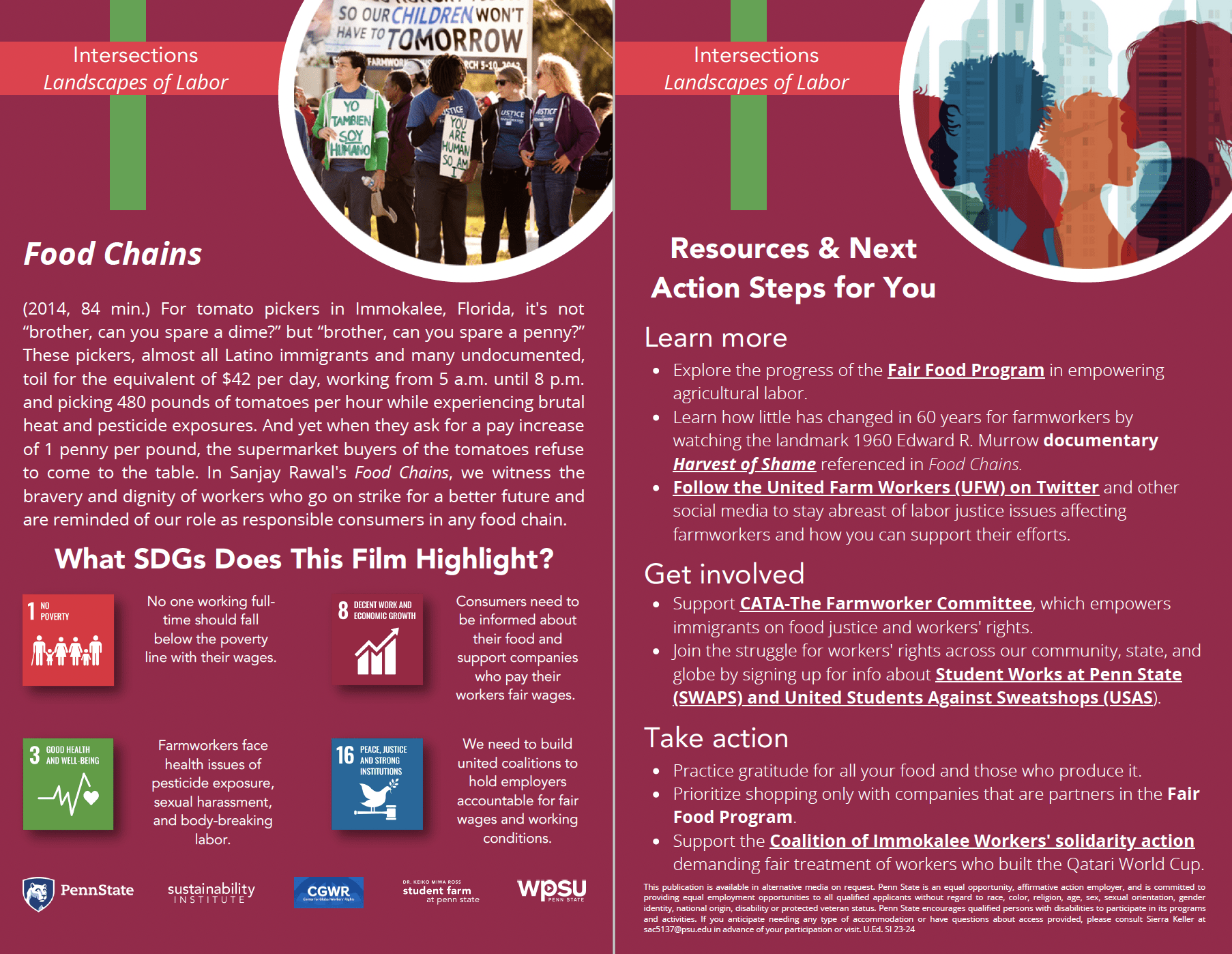Food Chains
Sanjay Rawal (2014, U.S., 83 min.) + post-film discussion
The famous phrase from the Great Depression was “brother, can you spare a dime?”. For tomato pickers in Immokalee, Florida, some 90 years later, their pleas aren’t even that bold. It’s: “brother, can you spare a penny?” Literally. These pickers, almost all Latino immigrants and many undocumented, toil for the equivalent of $42 per day, working from 5 a.m. until 8 p.m. and picking 480 pounds of tomatoes per hour while experiencing brutal heat and pesticide exposures. And yet when they ask for a pay increase of 1 penny per pound, the supermarket buyers of the tomatoes refuse to come to the table.
It’s this injustice and the bravery and dignity of the workers who stage a hunger strike outside of the Publix supermarket chain in Florida (one of the three biggest corporate conglomerates that control the vast majority of American supermarkets) that undergirds Sanjay Rawal’s impassioned Food Chains. Providing a history of agricultural labor in the U.S. from slavery through Cesar Chavez and the United Farm Workers, the film shows how little has changed for workers in terms of livable conditions. Slavery may be gone in name, but almost not in practice, as workers are trapped in inhumane working conditions with almost no legal recourse. But the biggest message of this film is that we are all connected to this inhumanity by the food chains that bring food to our table. If we’re going to build just, resilient communities for all, we need to do our part as consumers to hold corporations accountable for the “harvest of shame” that feeds us.
Following the film screening, we held a post-film discussion about farm labor and workers’ rights featuring:
- Erika Perez, Food Justice Coordinator, CATA-Farmworkers
- Marta Plumhoff, Food Systems Coordinator, Ross Student Farm, Penn State
- Dr. Amy Snipes, Associate Professor of Biobehavioral Health, Penn State
(Shown in partnership with the Center for Global Workers’ Rights and the Ross Student Farm)
The predicament of the pickers — who the author Eric Schlosser suggests in the film may constitute one facet of ‘a new peasantry’ — is more than enough to move and shame us. How miserable does your day have to be to transform the breeze from a pesticide spray into a blessing?

